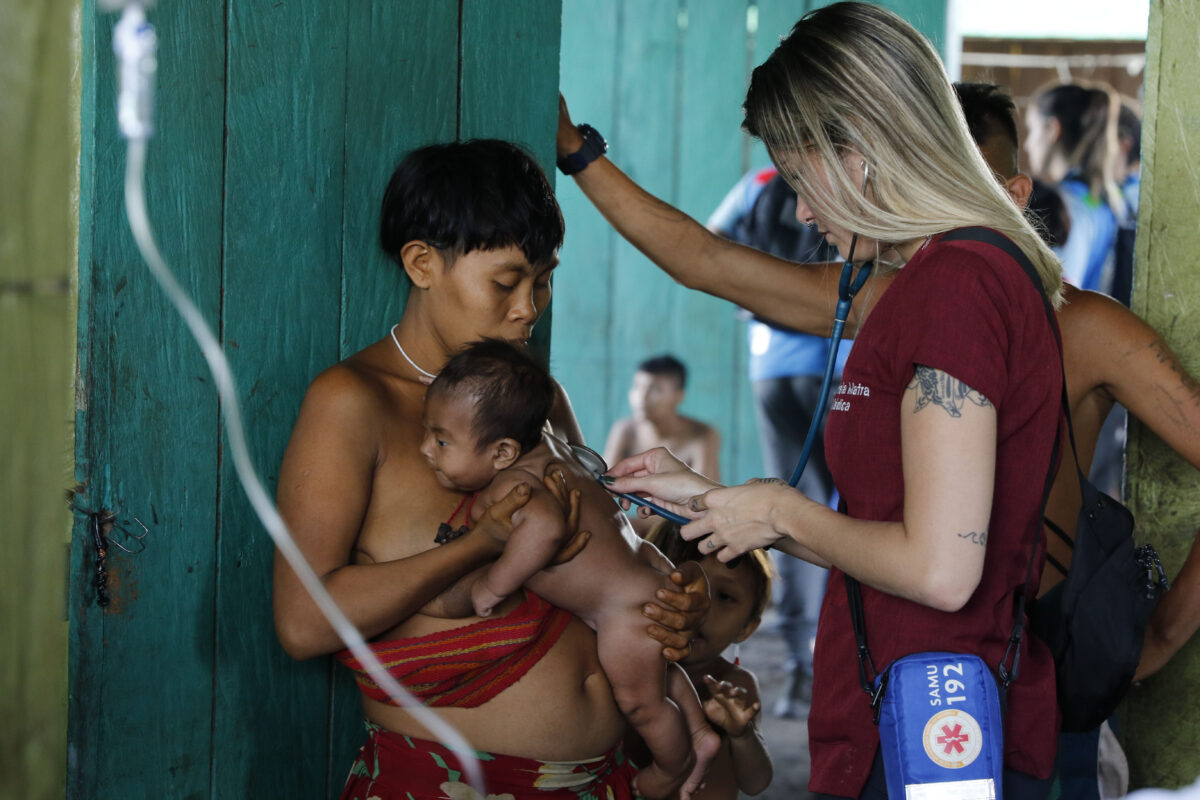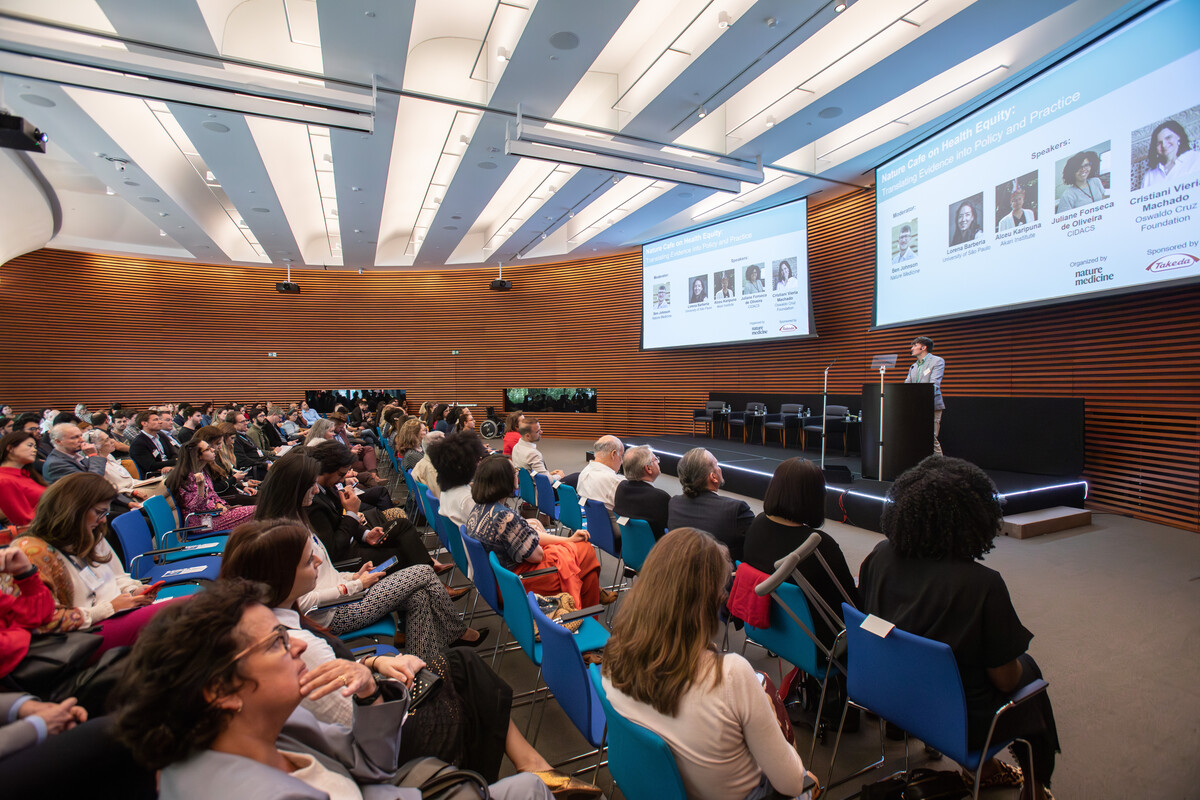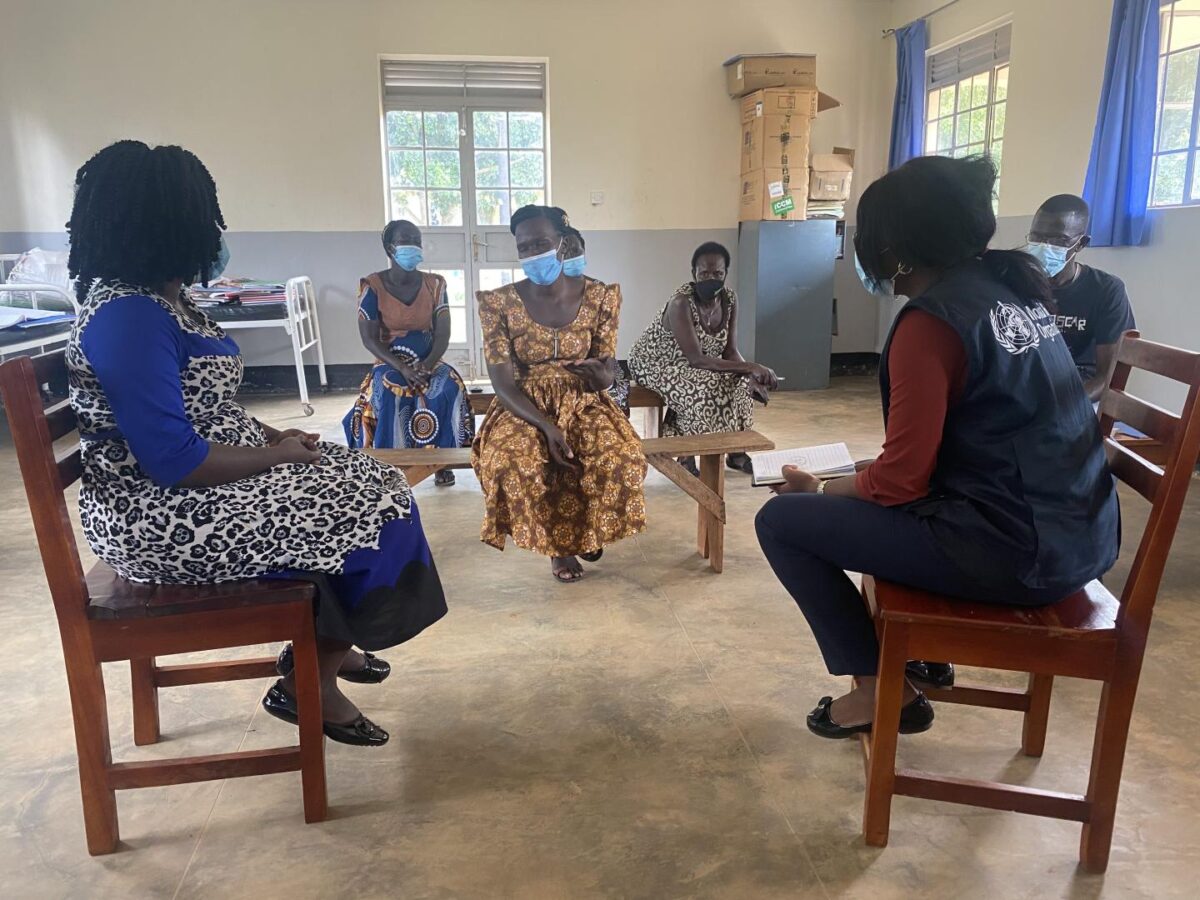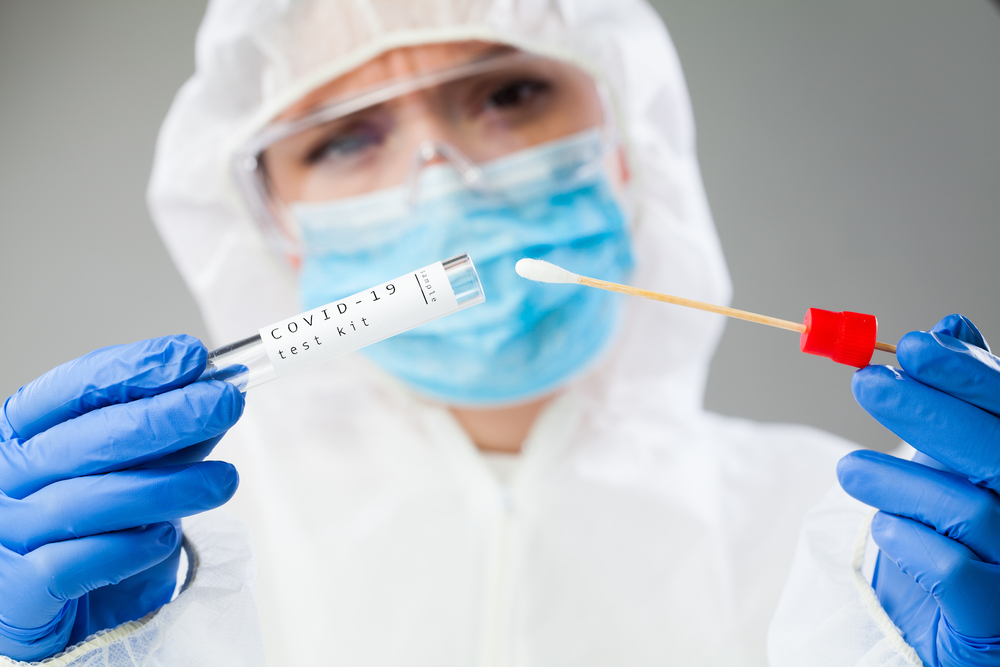 #News
#News
More inclusive health
Researchers discuss ways to expand access and improve health outcomes in Brazil
 Brazil’s Public Health System team during care in Surucucu, in the Yanomami Indigenous Land, in early 2023 | Photo: Fernando Frazão/Agência Brasil
Brazil’s Public Health System team during care in Surucucu, in the Yanomami Indigenous Land, in early 2023 | Photo: Fernando Frazão/Agência Brasil
On July 26, researchers from various fields and institutions met at the Albert Einstein Teaching and Research Center’s Cecília and Abram Szajman Campus in São Paulo to discuss ways of increasing health equity around the world, especially in research. The meeting, organized by the journal Nature Medicine, showed that strategies for guaranteeing healthcare access and improving health outcomes need to be based on a virtuous union of knowledge and techniques and on open and inclusive research collaborations capable of ensuring that more people have access and benefit from the results.
Ben Johnson, senior editor at Nature Medicine, believes health equity should be seen as a principle and foundation of ethics in medicine. “There is no longer room for the idea that the same treatment or intervention is applicable to all individuals, regardless of their origins, cultures, or genetic differences. Every community has its own specific needs and challenges, and this must be taken into account in health studies.”
“This has been our mission, to transform health services, making them more accessible and inclusive, benefiting the whole of society,” highlighted Dr. Fernando Bacal, vice president of Research and Innovation at Sociedade Beneficente Israelita Brasileira Albert Einstein. “Our research seeks broad solutions to health problems that affect the entire population, whether through the public or private system.”
He cites studies involving the use of CAR-T-cell therapy to treat cancer as an example. “Last year, we received approval from ANVISA [Brazil’s Health Regulatory Agency] to start administering CAR-T cells to humans. It was the first approval of its kind for an academic organization and hospital in Brazil.”
Data science can be a useful tool in this regard, helping raise the bar and improving the quality of public health policies. Created in Salvador, Bahia, in 2016, the Center for Integration of Data and Health Knowledge of the Oswaldo Cruz Foundation (CIDACS-FIOCRUZ) has used this approach to investigate the impacts of public policies and social inequalities on different aspects of public health.
The studies carried out by the center are based on data from 100 million Brazilians, recorded on a unified database for social programs and on other health information systems. “The idea is that the research projects analyze the information, generating knowledge that can be used for decision-making in the field of social policies, particularly ones focused on reducing poverty and health inequalities,” said mathematics postdoc Juliane Oliveira of CIDACS-FIOCRUZ.
One of the studies carried out by the group assessed the impact of the Bolsa Família welfare program on infant mortality rates in different regions of the country. Based on data from more than 6 million children, the researchers identified a significant association between participation in the program and a lower risk of mortality among children aged 1 to 4, especially those born prematurely, those whose mothers are Black, and those from very low-income areas.
Another successful example is the Solidarity Research Network, created during the pandemic and bringing together more than 100 researchers from various fields of knowledge—who normally do not work together—to produce integrated analyses of policies designed to combat the health crisis caused by the novel coronavirus (SARS-CoV-2).
“We collected information from various databases on policies designed to combat the pandemic. We wanted to understand how social determinants and regional inequalities influence adherence and the effectiveness of implemented strategies,” explains the head of the network Lorena Barberia, from the Department of Political Science at the University of São Paulo (USP).
In another project, the group identified and analyzed measures adopted by state and municipal governments to ensure access to education.
“In the absence of a nationwide strategy to control and mitigate the spread of the coronavirus, mayors and governors had to adopt nonpharmaceutical interventions to reduce the spread,” said USP’s Lorena Barberia.
In 2020, 26 state governments closed public schools in Brazil, affecting more than 35.2 million children. “The majority were from vulnerable backgrounds,” emphasized Barberia. “For these children, school closures resulted in increased levels of hunger and nutritional deficiency—for many, lunch was the only food they had for the day,” said the researcher.
These and other results attained by the group have been published in bulletins alongside recommendations on how to improve current policies. “One of our concerns was how to circulate our findings in a way that would reach managers and decision makers and increase public awareness, sparking evidence-based discussions,” said Barberia.

Reconciling knowledge
Efforts to improve health outcomes in Brazil also involve reconciling Western medicine with the traditional knowledge of indigenous populations. An initiative led by Alceu Karipuna, a physician from the Federal University of Amapá (UNIFAP), has made progress on this front. Since 2015, final-year medical students at the university have participated in workshops on indigenous health.
According to Karipuna, indigenous notions of health and illness have specific characteristics that differ from Western medicine. “Indigenous medicine sees our relationship with the environment as part of the cause of disease and the cure, believing that many illnesses are triggered by a bad relationship with the rainforest,” says Karipuna. “It is not possible to treat illness with medicine alone. The cure relies on a combination of strategies, such as the use of herbal formulations.”
After taking the workshops, the students do work in the field on a medical internship with the Karipuna indigenous group in the region of Oiapoque, located in the extreme north of the state of Amapá. They provide health, dental, and food security services, interacting and exchanging experiences with shamans and healers about healthcare, childbirth practices, the importance of plants and spirituality in the care process, and other aspects of indigenous medicine.
The dynamic gives students a chance to learn about the processes used in these communities before they begin working at hospitals. “It is important for doctors to work in collaboration with indigenous specialists to ensure that healthcare for these populations is offered within an environment that respects the different traditions of each group,” said the doctor.
Gender equity
The researchers also discussed initiatives to combat gender inequalities in science and medicine. Women represent more than half of the workforce in the fields of science and health worldwide, but they occupy few leadership positions at universities, research institutes, medical societies, and other organizations.
“In Brazil, the current head of the Ministry of Health is a woman for the first time in 70 years,” highlights Dr. Cristiani Vieira Machado, vice president of education, information, and communication at FIOCRUZ, referring to political scientist Nísia Trindade, who was also the first woman to chair FIOCRUZ.
For FIOCRUZ’s Cristiani Machado, governments need to place a higher priority on gender issues, which exacerbate social and health inequalities.
In her lecture, the doctor highlighted a range of government initiatives designed to curb the problem, including the National Program for Gender and Race Equity and Appreciation of Female Workers in Brazil’s Public Health System (SUS).
One of the objectives of the program, launched in March, is to encourage the creation of public policies and proposals that promote safe and dignified workplaces in the health sector, taking gender and racial inequalities into account.
FIOCRUZ has also adopted strategies to mitigate the problem. In 2019, it created a Gender and Race Equality Committee to formulate an institutional agenda for strengthening race and gender equality at the institution, including by updating and reforming policies on the topic.
“In 2019 we also launched the Women and Girls in Science program, which shares information on the careers of female scientists in Brazil and abroad, as well as organizing scientific activities in public schools with the aim of sparking an interest in science and academia among high school students,” said Machado.
“Gender equity is not solely a matter of justice and rights—it is a way to improve the quality of research, treatment, and patient care in health services,” she concluded.
Awards
The July 26 event was also host to Nature’s Inclusive Health Research award, which recognizes international research collaborations that make healthcare more accessible.

First place was awarded to HEAlth caRe needs of the Deaf (HEARD), an application developed by a group led by Uma Palanisamy, a biochemist from Monash University Malaysia, which allows people with hearing impairments to access health information in sign language.
Second place went to the Canadian Collaboration for Immigrant and Refugee Health: The Power of Newcomer Stories. The project supports newly arriving refugee families in Canada, encouraging researchers to include students from these families in studies into the needs of refugees in the country.
Three other projects shared third place:
- More Than a Pill, a South African documentary about creating the conditions needed for young women living with HIV to thrive;
- Caring for Carers, an Australian clinical supervision program for mental health and psychosocial support practitioners working with displaced Syrians in Northwest Syria and Turkey, and Rohingya in Bangladesh;
- The Māori and Bipolar Disorder Research Project, an initiative from New Zealand that explores the health profile, needs, and systemic factors that affect the well-being of Māori people with bipolar disorder.
“The choice of the Albert Einstein Teaching and Research Center as the location for the award ceremony signals that what we are doing is in line with what Springer Nature considers inclusive research,” said Luiz Vicente Rizzo, research director at Einstein.
“Our mission has been to serve the Brazilian population through research that focuses on universal solutions to problems that affect everyone”, said Rizzo.
An example of this, he highlights, are its studies on the use of gene therapy to treat sickle cell anemia, a chronic genetic disease that still has no specific treatment, and the OPTIMAL-AVC project, developed in partnership with Brazil’s Ministry of Health and aimed at developing strategies to prevent the recurrence of strokes.
The event was sponsored by pharmaceutical company Takeda and was supported by Einstein.
*
This article may be republished online under the CC-BY-NC-ND Creative Commons license.
The text must not be edited and the author(s) and source (Science Arena) must be credited.


